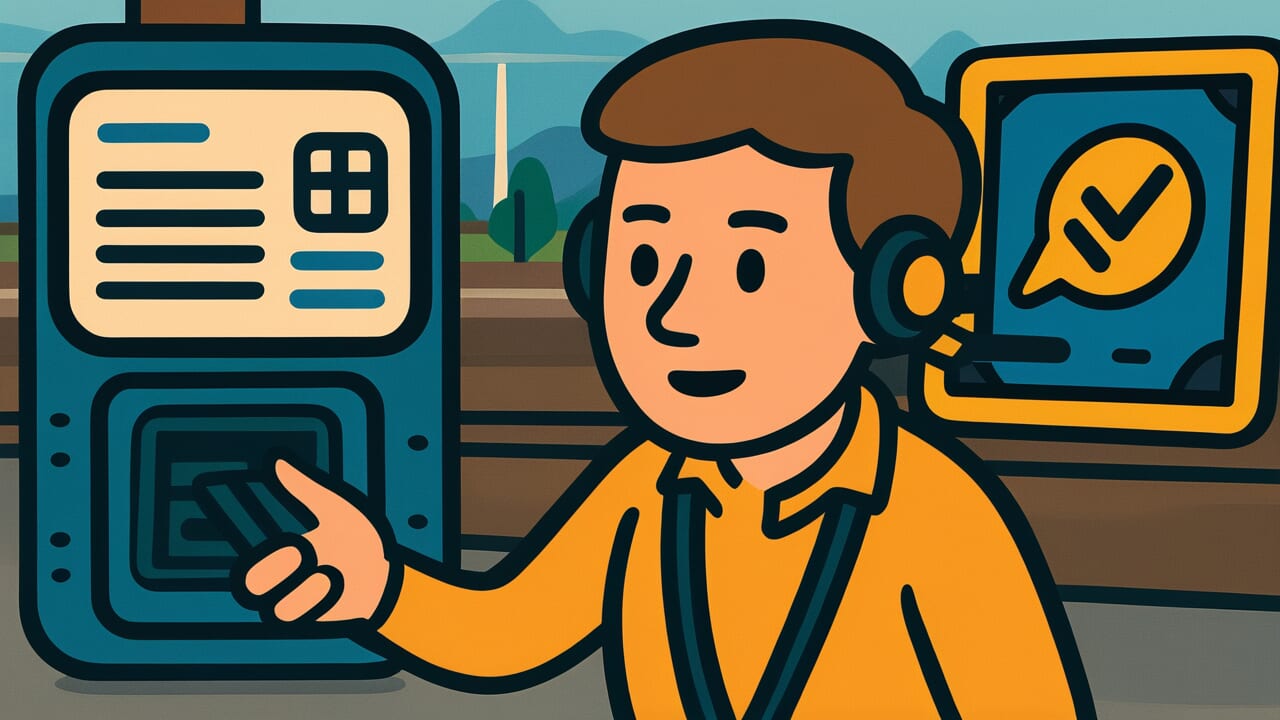How to Read “Talking pays no toll”
Talking pays no toll
[TALK-ing pays no tohl]
All words use common pronunciation.
Meaning of “Talking pays no toll”
Simply put, this proverb means that speaking costs nothing and comes without restrictions or consequences.
The literal meaning refers to old toll roads where travelers paid fees to pass through. Unlike crossing bridges or using roads, talking requires no payment. The deeper message suggests that words flow freely without immediate cost. Speech seems unlimited and unrestricted compared to physical actions.
We use this saying when discussing free expression or casual conversation. Someone might say this when encouraging open dialogue at work. It applies when people hesitate to share ideas in meetings. The phrase reminds us that speaking up doesn’t drain our bank account or use up resources.
What’s interesting about this wisdom is how it captures both freedom and danger. People often realize that while words cost nothing to say, they can create expensive problems later. The proverb highlights how speech feels free in the moment. It shows why humans talk so much compared to other costly activities.
Origin and Etymology
The exact origin of this proverb is unknown, though it clearly comes from an era when toll roads were common. Toll systems existed across Europe and America from medieval times through the 1800s. Travelers regularly paid fees to cross bridges, use roads, or pass through gates.
During these periods, people understood costs in very physical terms. Everything valuable required payment, labor, or resources. Roads needed maintenance, bridges required construction, and services demanded compensation. Speaking stood out as one of the few truly free human activities.
The saying likely spread through oral tradition before appearing in written collections. Many proverbs about speech and consequences developed during times when communities were small. People learned quickly that words, while free to speak, could create social debts. The phrase traveled through English-speaking regions as toll roads became common experiences.
Interesting Facts
The word “toll” comes from Greek and Latin roots meaning “tax” or “tribute.” Medieval toll roads were called “turnpikes” because guards turned wooden pikes to block passage until payment. This proverb uses economic language to describe social behavior, which was common in traditional sayings.
Usage Examples
- Manager to employee: “Feel free to share any concerns about the new policy – talking pays no toll.”
- Friend to friend: “You should tell him how you really feel about his decision – talking pays no toll.”
Universal Wisdom
This proverb reveals a fundamental tension in human communication that has puzzled people for centuries. Speech appears to be the ultimate free resource – unlimited, renewable, and available to almost everyone regardless of wealth or status. Unlike food, shelter, or tools, words seem to cost nothing to produce and nothing to share.
Yet this apparent freedom creates a dangerous illusion. Humans evolved as social creatures where reputation and relationships determine survival. Every word we speak enters a complex web of social consequences that our ancestors understood instinctively. The proverb captures this paradox perfectly – speech feels free because there’s no immediate physical cost, but the social and emotional costs can be enormous.
The deeper truth lies in how our brains process immediate versus delayed consequences. Speaking activates reward centers instantly through social connection and self-expression. The potential costs – damaged relationships, lost trust, or social rejection – remain abstract and distant. This biological quirk explains why people throughout history have struggled with the same pattern. We feel the benefits of speech immediately but experience the costs much later, making it difficult to connect cause and effect.
When AI Hears This
People treat talking like breathing – automatic and free. But every word creates invisible debts that pile up over time. We speak carelessly today, then wonder why relationships suddenly turn cold. Our brains simply cannot track the hidden costs of communication.
This blindness serves a deeper purpose in human survival. If people truly calculated every social risk before speaking, conversations would freeze. The illusion of free speech keeps communities talking and bonding. Humans evolved to underestimate communication costs because connection matters more than perfect accuracy.
What fascinates me is how this creates perfect social chaos. People overshare, make promises they forget, and speak without thinking. Yet somehow this messy system works better than careful silence. The beautiful disaster of human communication flows from treating precious words as worthless.
Lessons for Today
Understanding this wisdom means recognizing the hidden costs that come after free speech. While words don’t require money or physical resources, they create invisible debts in relationships and reputation. The challenge lies in remembering future consequences when present expression feels so effortless and rewarding.
In personal relationships, this awareness helps explain why casual comments sometimes create lasting damage. Friends and family members remember careless words long after speakers have forgotten them. The key insight is developing a mental toll booth – pausing to consider whether certain words are worth their eventual price. This doesn’t mean avoiding honest communication, but rather choosing words with the same care we’d use when spending money.
At work and in communities, this wisdom becomes even more complex. Open communication drives innovation and problem-solving, yet careless speech can destroy careers and partnerships. The most effective approach involves treating words as investments rather than free resources. Some conversations pay dividends through stronger relationships and better outcomes. Others create debts that compound over time through damaged trust and missed opportunities.
The goal isn’t to speak less, but to speak more intentionally. This ancient observation reminds us that our ancestors understood something important about human nature. They recognized that the things which feel free often carry the highest hidden costs, and the most valuable human activities require wisdom to navigate well.



Comments